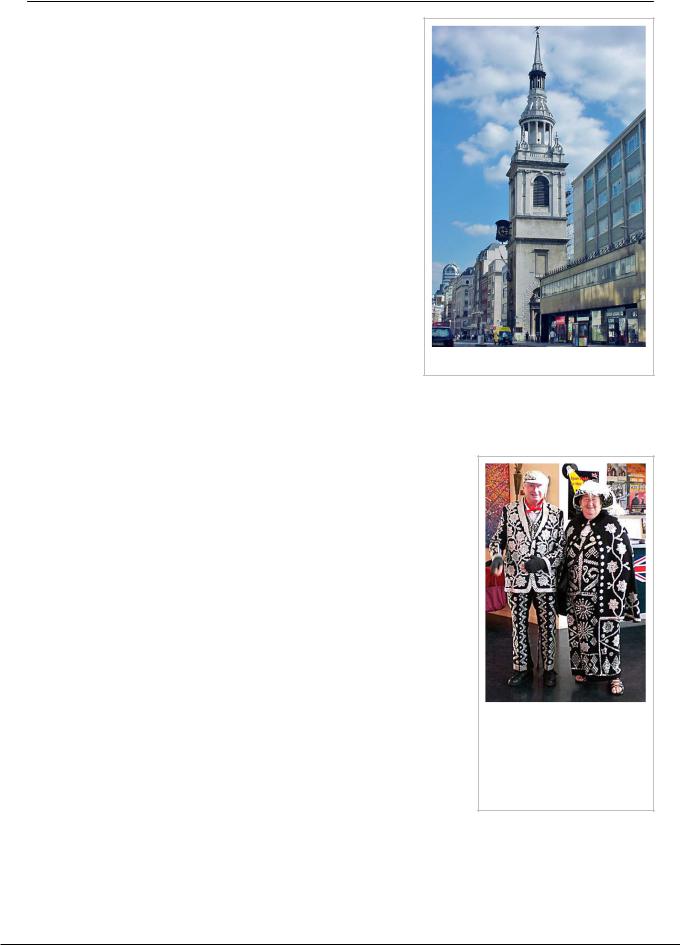

Cockney |
1 |
Cockney
The term Cockney has geographical, cultural and linguistic associations. Traditionally, it refers to people born within a certain area of London, that is covered by "the sound of Bow bells". Geographically and culturally, it is often used to refer to working-class Londoners, particularly those in the East End. Linguistically, it can refer to the accent and form of English spoken by this group.
St Mary-le-Bow
Etymology
The earliest recorded use of the term is 1362 in The vision of William concerning Piers Plowman (Passus VI) by William Langland and it is used to mean a small, misshapen egg, from Middle English coken (of cocks) and ey (egg) so literally "a cock's egg".[] In "The Reeve's Tale" by Geoffrey Chaucer (circa 1386) it appears
as "cokenay",[] and the meaning is "a child tenderly brought up, an effeminate fellow, a milksop".[][][1] By 1521 it was in use by country people as a derogatory reference for the effeminate town-dwellers.[][2] The term was used to describe
those born within earshot of the Bow Bells in 1600, when Samuel Rowlands, in his satire The Letting of Humours Blood in the Head-Vaine, referred to "a Bowe-bell Cockney".[3] Traveller and writer Fynes Moryson stated in his work An Itinerary that "Londoners, and all within the sound of Bow Bells, are in reproach called Cockneys."[4] John Minsheu (or Minshew) was the first lexicographer to define the word in this sense, in his Ductor in Linguas (1617), where he referred to "A Cockney or Cockny, applied only to one born within the sound of Bow bell, that is in the City of London".[5] However, the etymologies he gave (from "cock" and "neigh", or from Latin incoctus, raw) were incorrect. Francis Grose's A Classical Dictionary of the Vulgar Tongue (1785) derives the term from the following story:
A costume associated with Cockneys is that of the pearly King (or pearly Queen) worn by London costermongers who sew thousands of pearl buttons onto their clothing in elaborate and creative patterns.
A citizen of London, being in the country, and hearing a horse neigh, exclaimed, Lord! how that horse laughs! A by-stander telling him that noise was called Neighing, the next morning, when the cock
crowed, the citizen to shew he had not forgot what was told him, cried out, Do you hear how the Cock Neighs?[6][]
